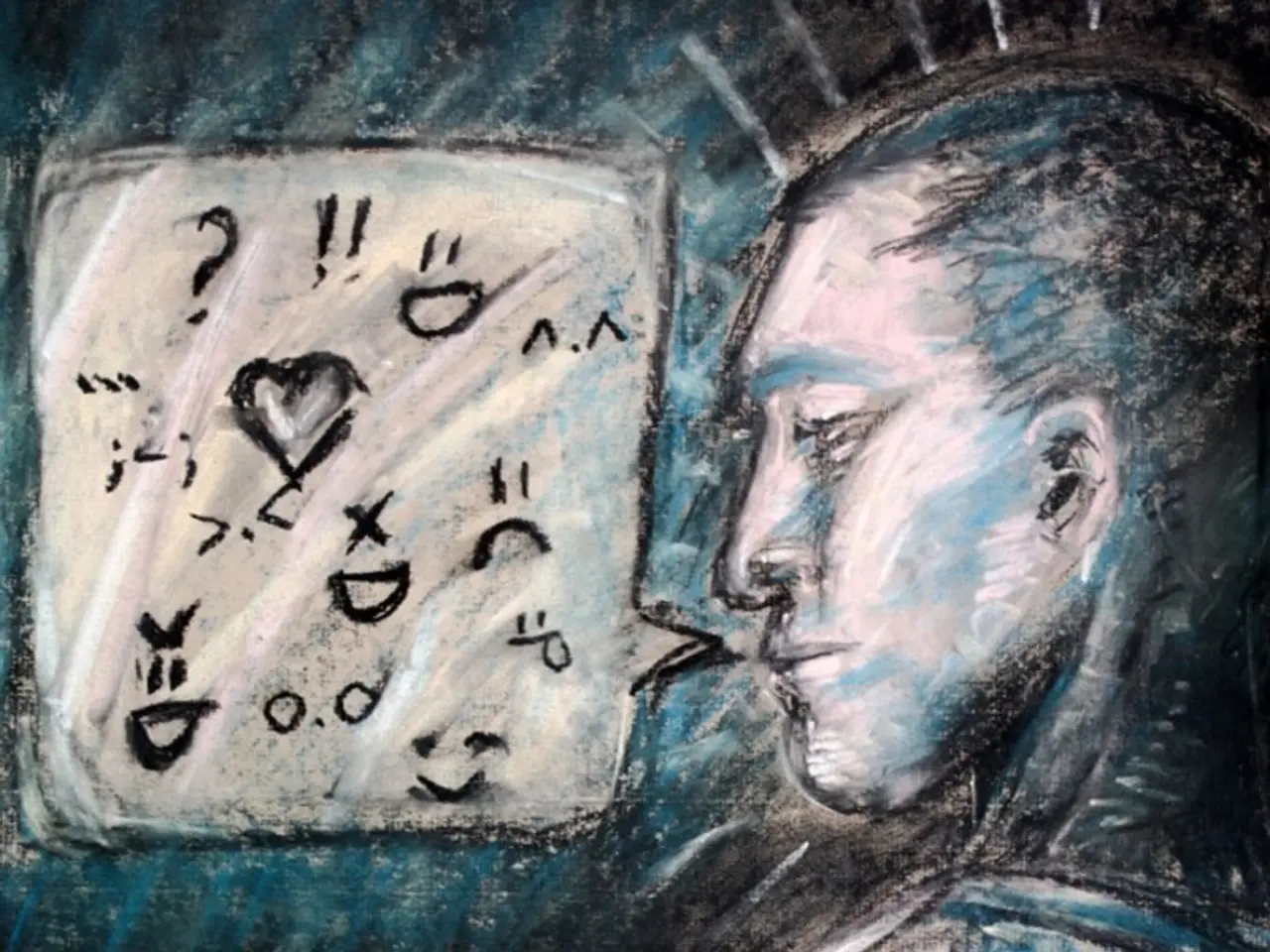Artificial Intelligence Bonds Among Pupils: Exploring the Risks and Advantages for School-age Children
In the digital age, artificial intelligence (AI) is increasingly being explored for its potential to improve mental health support, particularly among young people. Clinical psychologist Heidi Kar is one of those leading this charge, envisioning AI as a tool to help manage personal relationships and provide practical advice rather than simply offering empathy.
Kar, along with her collaborator, has developed a digital mental health program called Mental Health for All. This innovative platform combines interactive audio instruction, stories, AI chatbots, and peer-to-peer interaction. The AI characters in the program are designed to initiate conversations about people, emotions, and mental health that might not exist in the student's culture.
The focus is on using AI to help students navigate complex personal relationships, such as seeking a girlfriend or boyfriend, rather than creating relationships with the AI itself. The AI is designed to provide an outlet for students who might not feel comfortable discussing these topics in their own cultural context.
However, Kar acknowledges the potential risks associated with AI's impact on young people's mental health. Dependence on AI for emotional support can impair creativity, critical thinking, decision-making skills, and social development. Some teens may even form unhealthy attachments to AI companions, which can exacerbate mental health issues.
Researchers emphasize the need for parents and educators to monitor youth AI use more closely, increase awareness, and encourage balanced interaction with AI as a supplemental tool, not a replacement for human relationships. Mental health professionals also call for careful design of chatbot interventions, respecting privacy, transparency, and ethical guidelines.
Regulatory bodies, such as the European Union’s Artificial Intelligence Act, are beginning to address psychological harm caused by AI, but scholars argue that these regulations are insufficient in defining and mitigating mental health risks from AI products like chatbots. There is a growing call for more robust legal frameworks focusing on consumer protection, especially for vulnerable young users.
The landscape of AI-human relationships is still largely unexplored, with some comparisons being drawn to the porn industry. However, more and more people are turning to AI chatbots for friendships and even pseudo-romantic relationships. This raises concerns about the potential for unhealthy interactions, particularly among young people.
A recent tragedy in Florida underscores these concerns. A 14-year-old boy died by suicide, and his mother has filed a lawsuit against Character.AI, alleging the company is responsible for his death. The boy frequently used the app, speaking with a Game of Thrones-inspired character moments before his death.
Designers of mental health programs must be mindful of these risks and avoid creating AI "yes" people that only tell those who interact with them what they want to hear. Instead, they should strive to provide empathy and warmth while delivering necessary skills and advice.
As AI continues to evolve, it holds promise for improving mental health support for young people. However, it requires mindful integration, ongoing research, and regulatory oversight to manage associated risks effectively.
- Clinical psychologist Heidi Kar, among others, is using AI to develop the digital mental health program Mental Health for All, which includes interactive audio instruction, AI chatbots, stories, and peer-to-peer interaction.
- The AI in Mental Health for All is designed to initiate conversations about people, emotions, and mental health, particularly to help students navigate complex personal relationships.
- Kar acknowledges potential risks associated with AI's impact on young people's mental health, such as impaired creativity, critical thinking, and social development due to dependence on AI for emotional support.
- Researchers and mental health professionals emphasize the importance of parents, educators, and regulators monitoring AI use, increasing awareness, and encouraging balanced interaction to prevent unhealthy attachments to AI companions.
- AI-human relationships are beginning to resemble the porn industry, raising concerns about the potential for unhealthy interactions, especially among young people.
- Designers of mental health programs should strive to provide empathy and warmth while delivering necessary skills and advice, avoiding creating AI "yes" people that only tell those who interact with them what they want to hear.
- As AI evolves, it holds promise for improving mental health support for young people but requires mindful integration, ongoing research, and regulatory oversight to manage associated risks effectively.




